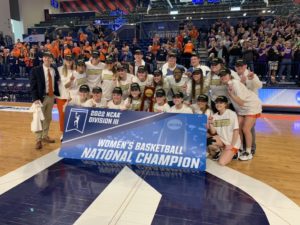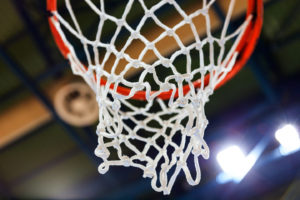Christian school’s right to pray over loudspeaker before games is in federal judge’s hands
A battle that began over five years ago for Cambridge Christian School in Tampa, Fla. is officially in the hands of a federal judge. U.S. District Judge Charlene Edwards Honeywell heard final…
A battle that began over five years ago for Cambridge Christian School in Tampa, Fla. is officially in the hands of a federal judge. U.S. District Judge Charlene Edwards Honeywell heard final arguments on December 21st regarding whether or not the Florida High School Athletic Association violated the First Amendment rights of Cambridge Christian when they refused to allow the school to broadcast pregame prayer at a class 2A state football championship game.
The incident in question occurred before a game at Orlando’s Camping World Stadium, where Cambridge Christian squared off against Jacksonville’s University Christian. Cambridge Christian requested the use of the loudspeaker at the stadium for pregame prayer, as they had before every game that season—a tradition for the school that dates back to the 1960’s. University Christian also requested this communal prayer as they had traditionally done the same before each of their games. Both schools viewed the prayer as important to the members of their communities, with their religious missions being synonymous.
Tim Euler, Cambridge’s headmaster at the time of the controversy, said that they broadcast the prayer so that family and friends in the stands can hear. “It gives our families an opportunity to come together as moms and sons, dads and sons for a moment before the game—just a prayer of thanksgiving,” he explained.
The FSHAA, the state’s high school athletic governing body, denied the school’s request to include prayer. The association clarified that the schools would be allowed to pray amongst themselves, provided that students led the prayers. FSHAA then made the case that allowing the use of the PA system at the stadium, a stadium mainly paid for by public taxes, would be interpreted as ‘government speech’. The association claims that the use of the PA system would violate the separation of church and state. They went on to argue that as the host and coordinator of the event, the association is a ‘state actor’, which would mean they cannot legally grant permission for this activity.
Cambridge Christian filed a lawsuit against the FSHAA in September of 2016, saying that the organization violated its right to free speech and religious freedom. After a year of reviewing Cambridge’s case, the aforementioned Judge Honeywell dismissed the case in 2017. The school continued to fight, and in November 2019, a three-judge panel in the 11th U.S. Circuit Court of Appeals overturned the dismissal, stating that Honeywell was “too quick to pull the trigger” and that Cambridge had a plausible allegation that should be heard.
During the December 21st arguments, Cambridge Christian attorney Jesse Panuccio defended the school by pointing to a 2012 state championship game, which occurred in the same stadium, where the association allowed prayer over the PA system before the game. He also argued that, “High school students are capable of distinguishing between State-initiated, school-sponsored, or teacher-led religious speech on the one hand, and student-initiated, religious speech on the other.” Panuccio also pointed to the athletic association’s social media accounts, where the FSHAA had wished students “Merry Christmas” or asked for “thoughts and prayers” following tragic events, two sentiments he argued have an inherent religious meaning.
The ruling is expected to come within the next four months. Cambridge will continue its time-honored tradition of praying before games regardless of the outcome. It remains to be seen whether that tradition will be protected in future championship games for any faith-based school.
Recently, inspired by Cambridge’s case, the Florida House of Representatives passed a bill that would allow schools to have up to two minutes to address spectators with the content of their choosing without the control of the association. However, that bill died on the Senate floor.



